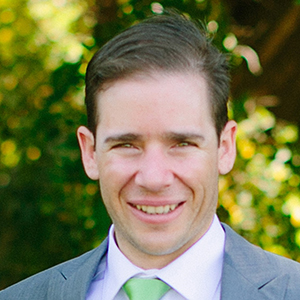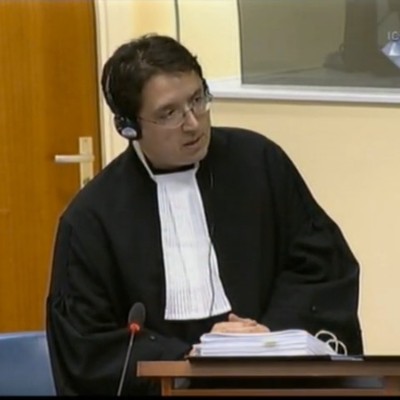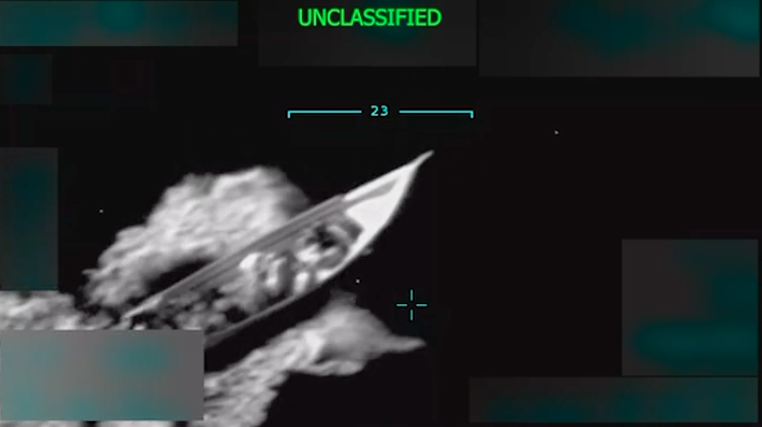Greater Than the Sum of the Parts: Cumulative Charging of Islamic State Fighters in Domestic Trials
A new report recommends that European courts should charge alleged Islamic State fighters with “core international crimes,” such as crimes against humanity or war crimes.

Published by The Lawfare Institute
in Cooperation With

It is widely recognized that the terrorist group commonly referred to as the Islamic State in Iraq and Syria is responsible for crimes shocking in their scale and brutality. Even so, there has been a now years-long international debate concerning accountability for those crimes, which has focused largely on determining the appropriate forum to try captured Islamic State fighters. Proposals have included ad hoc tribunals and even leaving the burden entirely to the detaining powers’ (that is, Iraq’s and the Syrian Democratic Council’s) justice systems—in other words, forum choices meant to keep detained fighters off the continent. Throughout this largely academic and politically driven discussion, some foreign fighters have returned to their countries of nationality and are being processed gradually by appropriate local authorities. Many hundreds of others are still in detention camps in Syria in a riddling security and humanitarian situation.
A report issued in late May by Eurojust, the European Union agency tasked with facilitating cooperation among the EU’s domestic legal systems, provides some hope for expanding and improving those domestic proceedings. The report specifically encourages European member states to explore “cumulative charging,” by charging Islamic State fighters not merely for their acts of terrorism but also for “core international crimes,” that is, crimes against humanity, war crimes and acts of genocide. Citing examples from six European countries, the report notes meaningful successes in atrocity prosecutions of Islamic State fighters in national courts and shows that including such charges where supported by evidence is important practically as well as morally. The report appears to align with a position for which the United States has long advocated—European justice systems have the capacity and responsibility to prosecute their nationals who left to fight for the Islamic State.
The prospect of holding European Islamic State fighters responsible for the full scope of their criminal conduct is a welcome, if long overdue development. In addition to filling a moral void that has festered as those whom the Islamic State displaced remain stuck in refugee camps alongside Islamic State sympathizers, cumulative charging carries at least three practical benefits. First, charging and convicting those fighters responsible for atrocity crimes as well as terrorism can help incapacitate them with longer sentences than we have seen in Europe over the past several years (Europol’s 2020 Terrorism Situation and Trend Report notes that the average sentence for terrorism in the EU in 2019 was six years’ imprisonment, which included offenses involving simple membership in a terrorist group as well as convictions for terrorist attacks that resulted in multiple murders). It also can provide closure for traumatized victims and their families by ensuring atrocities against them are made part of a criminal case. And such interdisciplinary work can improve the practice of both counterterrorism law and atrocity law by affording practitioners in each field opportunities to cooperatively solve shared legal challenges.
For the past several years, a broad coalition has waged a truly global war on the Islamic State that accomplished a kinetically driven rollback of its so-called caliphate. As the Eurojust report reflects, several coalition partners secured notable convictions of Islamic State members for terrorist crimes in the process, but most sentences have been shockingly short (by U.S. standards), and few cases have done anything to provide judicial backing to the many international declarations that Islamic State fighters have committed atrocity crimes.
It is worth recalling here some examples of how Islamic State members allegedly targeted Middle Eastern religious minorities including Yazidis, Christians and others for destruction, especially as it expanded the territory it controlled in 2015. By that year and in Iraq’s Ninewa province alone, the Islamic State and affiliated perpetrator groups had “forced more than 800,000 people from their homes and deliberately destroyed shrines, temples, and churches … kidnapped thousands and killed hundreds, likely thousands, of people. In less than three months, [the Islamic State] decimated millennia-old communities and irrevocably tore the social fabric of the once-diverse region,” according to a Holocaust Museum report. Around the same time in neighboring Syria, the Islamic State declared it had “establish[ed] the rule of God in Christians in the villages of al-Qaryatain” after destroying a 1,600-year-old monastery there; Islamic State fighters continued executing large numbers of civilians, particularly Christians in that town, including upon the terror group’s retreat two years later. A 2016 report of the U.N.’s Commission of Inquiry on the Syrian Arab Republic also documents numerous allegations of mass executions and an organized system of sexual slavery, primarily against Yazidis.
If proved, acts like these may suffice to establish the legal elements of genocide, which can entail a variety of actions committed with the intent to destroy a national, ethnical, racial or religious group in whole or in substantial part. In the context of a widespread and systematic attack against civilians, they can also support charges for crimes against humanity including persecution, extermination, enslavement, rape, murder and forcible transfer. If connected to the armed conflict in which the Islamic State sought to conquer territory and establish a global caliphate, they can also support charges for war crimes including murder, torture and cruel treatment.
Indeed, these and other reported atrocities have spurred express findings around the world that the Islamic State committed genocide against the Yazidis (and other groups, including Iraqi and Syrian Christians). Those who have made such findings include the U.S. Congress, State Department, and Commission on International Religious Freedom; the European Parliament; the U.K. House of Commons; the U.N.’s Commission of Inquiry on the Syrian Arab Republic; the Iraqi Council of Ministers; and the Pope. Eurojust suggests, though it stops short of declaring outright, that the Islamic State committed genocide against the Yazidi minority. It also squarely accuses the Islamic State of having perpetrated both war crimes and crimes against humanity. Indeed, there is no shortage of graphic examples supporting both categories. For example, the Islamic State’s 2014 capture and execution of approximately 1,700 mostly Shiite Iraqi army recruits surely supports the former; its innumerable public beheadings of civilians and other gruesome crimes committed on a massive scale speak to the latter.
The vital investigative work leading those organizations to their conclusions has been done by a variety or groups—U.N.-established bodies in Syria and Iraq, national governments around the world, and even various private organizations. But, for all the evidence that has been gathered, no international court has jurisdiction over these crimes. In the absence of a Security Council referral, the International Criminal Court is powerless. Calls for an ad hoc tribunal have not materialized, and, indeed, the problems with standing up such a body in this instance are numerous. This has left most cases to be tried either in Iraq or by adjudicative bodies established by the Syrian Democratic Council (the political wing of the alliance of groups that make up the Syrian Democratic Forces). Although there have been important victories in Iraqi courts, observers have also raised serious due process concerns about Iraqi proceedings, which tend to result in stiff sentences. By contrast, fighters convicted in Syrian Democratic Council courts tend to get short sentences and art therapy. In any event, the council recently postponed trials indefinitely.
We agree with Eurojust that European countries’ national courts are perfectly capable of trying their nationals and others who traveled from those countries to the Middle East to fight for the Islamic State. That capability extends to both terrorism and atrocity crimes. Domestic law enforcement should be empowered to thoroughly investigate, with full cooperation from interagency and foreign counterparts, whether Islamic State defendants are culpable for atrocity crimes and include such charges whenever they are supported by evidence.
Prosecuting foreign fighters for atrocity crimes also helps to ensure that those responsible serve longer prison terms. This is particularly important in European countries, where convictions on charges of membership in a terrorist organization often give rise to short sentences, compared to convictions for material support for terrorism in the United States, or for terrorism in Iraqi courts. Atrocity crime charges can help ensure a punishment appropriate for a perpetrator’s level of culpability. Indeed, some European prosecutors have charged defendants with genocide and crimes against humanity in ongoing trials, and secured convictions for a variety of war crimes, with tangible results. Two sentences delivered on the same day in a Dutch court highlight the value of prosecuting Islamic State fighters on atrocity charges: One was convicted of war crimes and terrorism and sentenced to 7.5 years’ imprisonment, and the other was convicted only of terrorism and sentenced to just 4.5 years. Though both results are underwhelming, the nearly 70 percent longer sentence for the former is nevertheless notable. And longer available sentences for fighters also can help mitigate European leaders’ fear of political fallout from citizens upset with their governments for allowing foreign fighters to return to the country without adequate means to mitigate the threats they continue to pose.
Repatriation and prosecution of foreign fighters in European domestic courts is also particularly important for establishing a vetted, tested historical record of the full scale of the Islamic State’s crimes. Nuremberg and Srebrenica showed that atrocity trials represent a critical step in combating future denial and minimization of those crimes. Recognition and memorialization of atrocity crimes, including through reliable judicial processes, is also an important component of postconflict national reconciliation. Indeed, Nobel Prize winner Nadia Murad has argued that interethnic peace in Iraq will be possible only if atrocity crime perpetrators are brought to justice.
Finally, atrocity law and counterterrorism law present many of the same challenges. Practitioners in those fields should be encouraged and empowered to learn from each others’ experiences. In both domains, prosecutors and investigators must combine various types of forensic and documentary evidence and assess the structures of often-irregular armed groups to establish whether and how those groups’ leaders gave directions and exercised control over their subordinates’ criminal activity. Terrorism and atrocity prosecutors each must get custody of ruthless, sophisticated and often powerful defendants who have robust support networks. The tactics used to track atrocity crime fugitives therefore can be “very, very similar” to those used to locate high-value terrorists, as IRMCT Chief Prosecutor Serge Brammertz explained recently with respect to the arrest of Félicien Kabuga, an alleged financier of the Rwandan genocide. Putting counterterrorism and atrocity crime investigators and prosecutors together can have substantial benefits in sharing good practices and improving the quality of work in both fields.
Achieving these benefits will require substantial international cooperation, including sharing highly sensitive and perhaps classified evidence to facilitate fair, consistent and rigorous case theories; cooperation between atrocity crime prosecutors and counterterrorism specialists; and a meaningful investment in securing the best evidence, as well as finding creative ways to adduce and authenticate that evidence while protecting both due process and national security. But good law enforcement and justice officials do not fear tough cases, and while Eurojust’s report might be read as introducing an extra layer of complexity to already vexing matters, the benefits of heeding their call well outweigh the costs.





